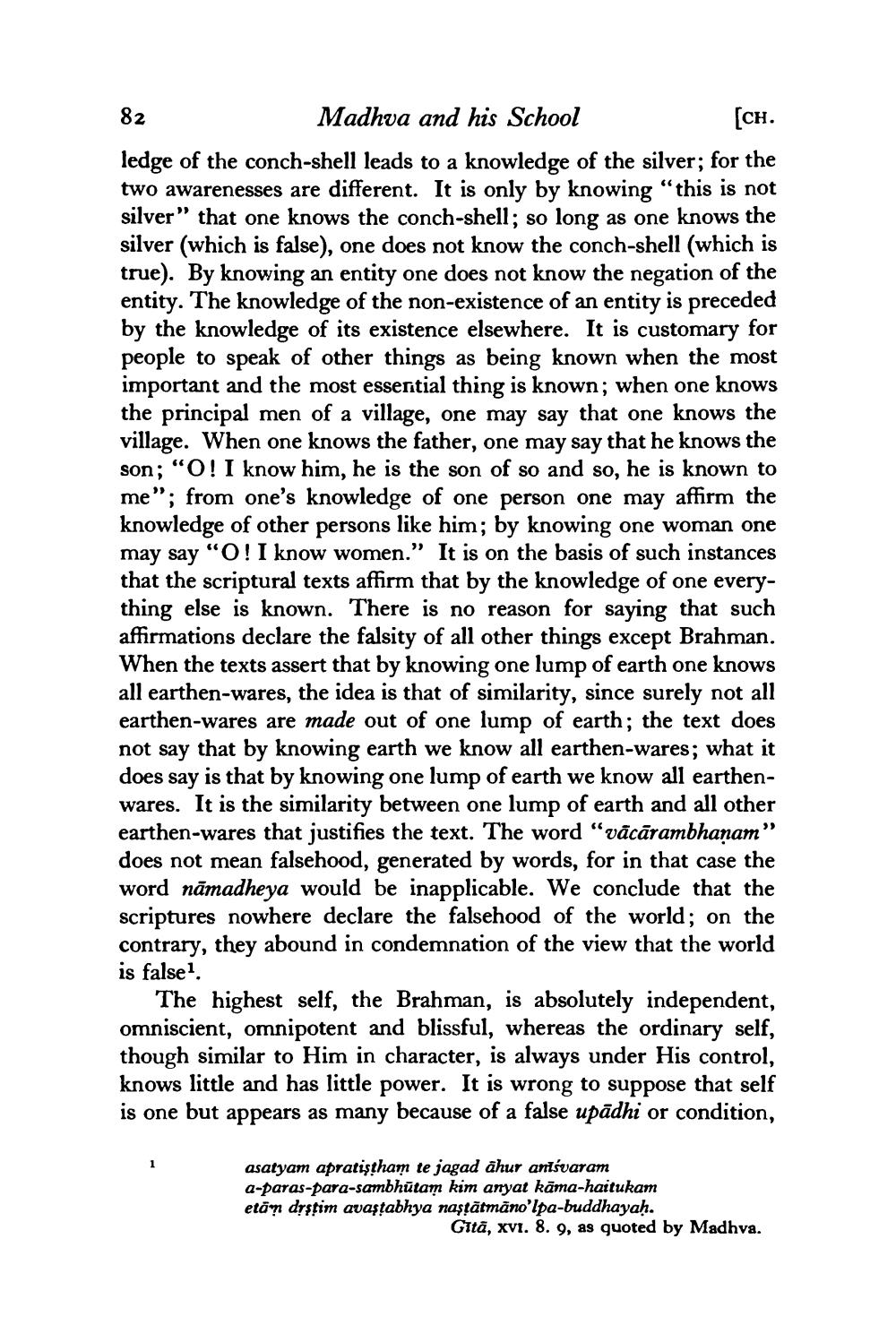________________
82
Madhva and his School
[CH. ledge of the conch-shell leads to a knowledge of the silver; for the two awarenesses are different. It is only by knowing “this is not silver" that one knows the conch-shell; so long as one knows the silver (which is false), one does not know the conch-shell (which is true). By knowing an entity one does not know the negation of the entity. The knowledge of the non-existence of an entity is preceded by the knowledge of its existence elsewhere. It is customary for people to speak of other things as being known when the most important and the most essential thing is known; when one knows the principal men of a village, one may say that one knows the village. When one knows the father, one may say that he knows the son; "O! I know him, he is the son of so and so, he is known to me"; from one's knowledge of one person one may affirm the knowledge of other persons like him; by knowing one woman one may say "O! I know women.” It is on the basis of such instances that the scriptural texts affirm that by the knowledge of one everything else is known. There is no reason for saying that such affirmations declare the falsity of all other things except Brahman. When the texts assert that by knowing one lump of earth one knows all earthen-wares, the idea is that of similarity, since surely not all earthen-wares are made out of one lump of earth; the text does not say that by knowing earth we know all earthen-wares; what it does say is that by knowing one lump of earth we know all earthenwares. It is the similarity between one lump of earth and all other earthen-wares that justifies the text. The word "vācārambhanam" does not mean falsehood, generated by words, for in that case the word nāmadheya would be inapplicable. We conclude that the scriptures nowhere declare the falsehood of the world; on the contrary, they abound in condemnation of the view that the world is false1
The highest self, the Brahman, is absolutely independent, omniscient, omnipotent and blissful, whereas the ordinary self, though similar to Him in character, is always under His control, knows little and has little power. It is wrong to suppose that self is one but appears as many because of a false upādhi or condition,
asatyam apratiştham te jagad āhur aniśvaram a-paras-para-sambhūtam kim anyat käma-haitukam etan dystim avastabhya naştātmāno'lpa-buddhayah.
Gitā, xvi. 8. 9, as quoted by Madhva.




